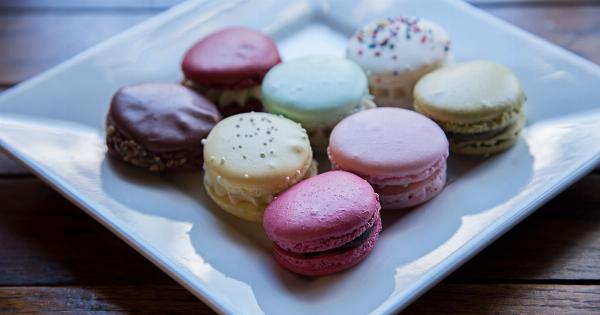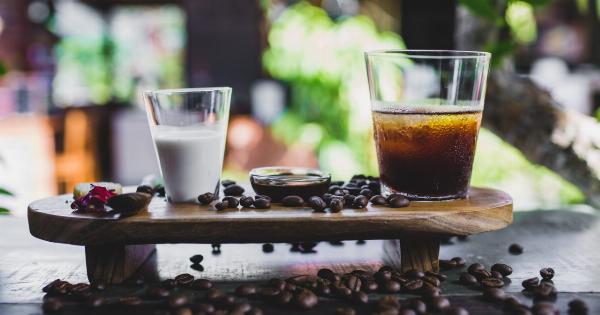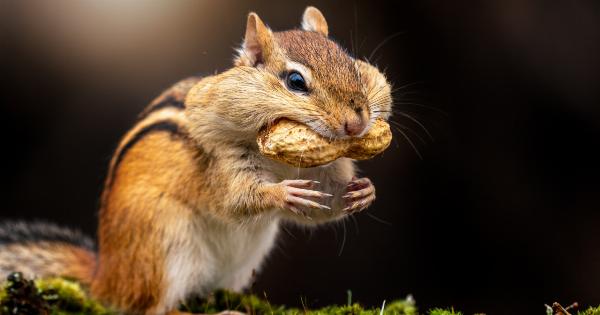Caffeine is a natural stimulant that is widely consumed around the world. It is found in many beverages, including coffee, tea, energy drinks, and soda.
The caffeine content of these beverages can vary widely, and it is important to understand how much caffeine you are consuming on a daily basis. In this article, we will investigate the caffeine content of various beverages and provide useful information for those who are interested in monitoring their caffeine intake.
Coffee
Coffee is a popular beverage that is known for its energizing effects. The caffeine content of coffee can vary depending on factors such as the type of coffee beans used and the brewing method.
On average, an 8-ounce cup of coffee contains about 95 milligrams of caffeine. However, this can range anywhere from 30 to 200 milligrams.
Tea
Tea is another common beverage that contains caffeine. The amount of caffeine in tea can vary depending on the type of tea and the brewing time. On average, an 8-ounce cup of black tea contains about 47 milligrams of caffeine.
Green tea, on the other hand, contains about 28 milligrams of caffeine per cup. However, herbal teas, such as chamomile or peppermint, do not contain any caffeine.
Energy Drinks
Energy drinks have gained popularity in recent years as a way to boost energy and improve focus. These beverages typically contain high levels of caffeine, along with other stimulants.
The caffeine content of energy drinks can vary greatly, with some brands containing as much as 300 milligrams of caffeine per can. It is important to be cautious when consuming energy drinks and to limit your intake to avoid potential negative side effects.
Soda
Soda, or soft drinks, are a common choice for many people. However, the caffeine content in soda can vary depending on the brand and the type of soda. On average, an 8-ounce serving of cola contains about 24 milligrams of caffeine.
Some brands, such as Mountain Dew, contain higher levels of caffeine, with about 54 milligrams per serving. It is essential to check the labels of soda to determine the caffeine content and make informed choices.
Other Beverages
In addition to the popular beverages mentioned above, there are other less common drinks that contain caffeine. These include certain types of chocolate drinks, like hot cocoa or chocolate milk, which can contain small amounts of caffeine.
Some fruit juices, like orange juice, may also contain caffeine if they are blended with ingredients like green tea extract. Always check the labels if you are unsure about the caffeine content of a particular beverage.
Effects of Caffeine
Caffeine has stimulant effects on the central nervous system, which can help increase alertness and reduce fatigue. It also has diuretic properties, meaning it can increase urine production and potentially contribute to dehydration.
However, excessive consumption of caffeine can lead to adverse effects such as increased heart rate, insomnia, anxiety, and digestive issues. It is important to be mindful of your caffeine intake and consume it in moderation.
Caffeine Intake Recommendations
The recommended daily caffeine intake varies depending on factors such as age, overall health, and sensitivity to caffeine. In general, it is recommended that adults consume no more than 400 milligrams of caffeine per day.
Pregnant women and individuals with certain medical conditions may be advised to limit their intake further. It is always best to consult with a healthcare professional to determine the appropriate caffeine intake for your specific situation.
Monitoring Your Caffeine Intake
If you are interested in monitoring your caffeine intake, there are several strategies you can employ. Keeping track of the beverages you consume and their caffeine content can help you stay within recommended limits.
Many websites and apps provide databases with caffeine information for various beverages, making it easier to track your intake. Additionally, reducing or avoiding caffeine intake in the evening can help prevent sleep disturbances and ensure a restful night’s sleep.
In Summary
Caffeine is a widely consumed stimulant found in many beverages. The caffeine content can vary greatly depending on the type of beverage, brand, and serving size.
Coffee and energy drinks tend to have higher caffeine levels, while tea and soda have lower amounts. It is essential to be aware of the caffeine content of your favorite beverages to manage your intake effectively. Monitoring caffeine intake and consuming it in moderation is important for maintaining a healthy lifestyle.



























